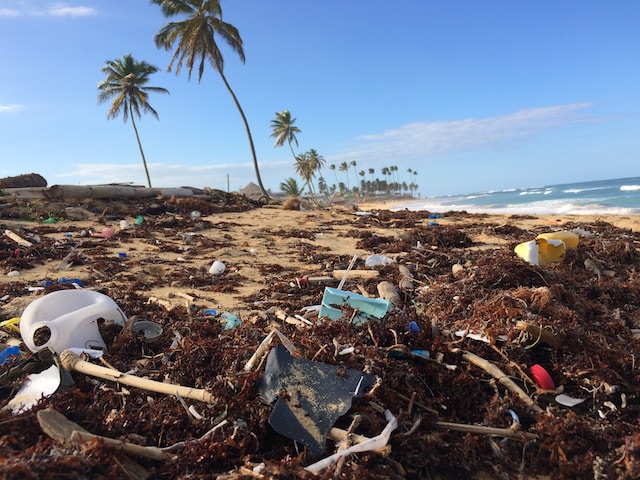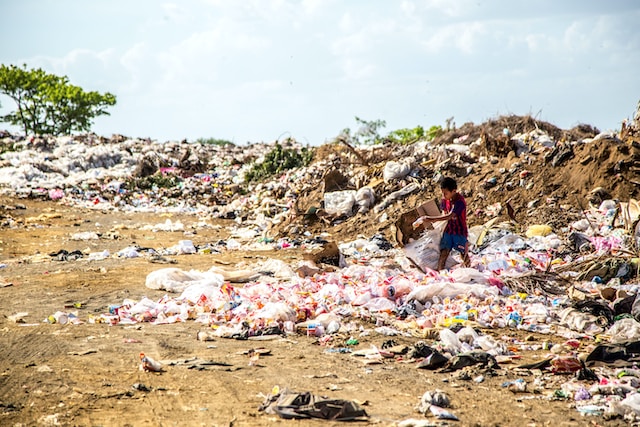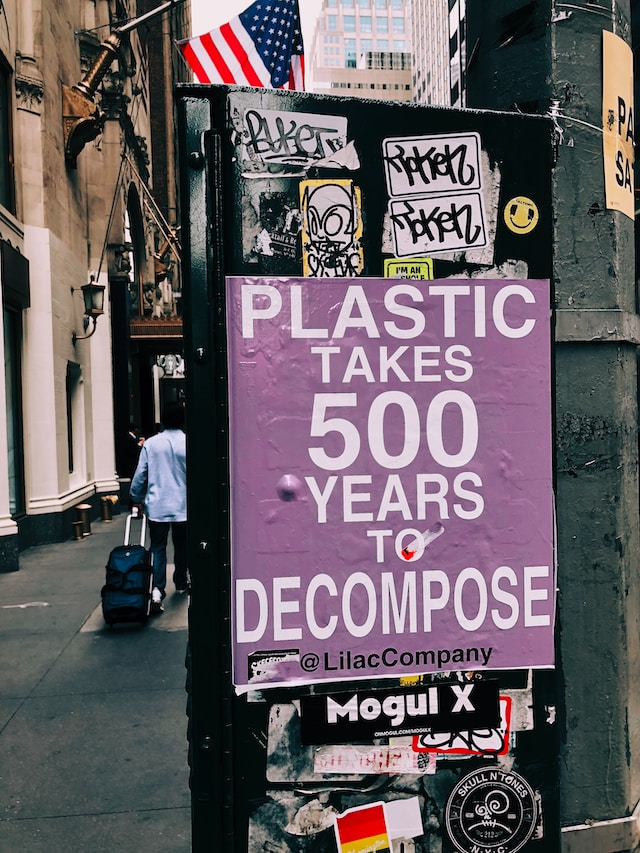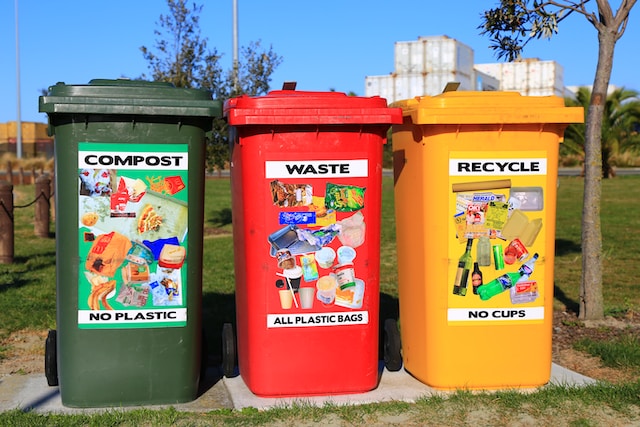
The issue of waste reduction is one that has been dominating the headlines in recent years, with countries all over the world taking drastic steps to reduce landfill waste and plastic pollution. From charging taxes on single-use plastics to promoting the use of reusable bags, businesses, governments and citizens alike are all taking steps to reduce waste and create a more sustainable future.
The Problem: Landfill Waste
Landfill waste refers to the disposal of solid waste in designated areas known as landfills. It is a significant environmental issue that arises from the excessive generation of waste and the inadequate management of waste disposal. Landfills are engineered sites where waste materials are deposited, compacted, and covered with layers of soil or other materials to minimize odors, litter, and the risk of contamination.
The volume of landfill waste has been increasing rapidly due to population growth, urbanization, and unsustainable consumption patterns. Landfills receive a wide range of materials, including household waste, industrial waste, construction debris, and other non-biodegradable or slow-to-degrade substances.
Environmental consequences of landfill waste
Landfill waste has significant environmental consequences, affecting air, soil, and water quality, as well as contributing to climate change. Some of the key environmental impacts of landfill waste include:
- Methane emissions: Landfills are a significant source of methane, a potent greenhouse gas that contributes to climate change. When organic waste decomposes in anaerobic (oxygen-limited) conditions, it produces methane. Methane emissions from landfills contribute to global warming and climate instability.
- Soil and groundwater contamination: Landfills can contaminate soil and groundwater with toxic substances, including heavy metals, organic pollutants, and leachate. Leachate is the liquid that forms when rainwater or other liquids come into contact with decomposing waste. If not managed properly, leachate can seep into the surrounding soil and contaminate groundwater, posing risks to ecosystems and human health.
- Air pollution: Decomposing waste in landfills releases a range of air pollutants, including volatile organic compounds (VOCs), hazardous gases, and unpleasant odors. These emissions can contribute to air pollution, impacting local air quality and posing respiratory health risks for nearby communities.
- Habitat destruction: Landfill sites can destroy natural habitats and ecosystems. The establishment of landfills often involves land conversion.

This leads to the loss of biodiversity and disruption of natural ecological processes. Wildlife populations may be displaced or endangered as their habitats are encroached upon.
Health hazards associated with landfill waste
The presence of landfill waste can pose significant health hazards to nearby communities and workers involved in waste management. Some of the health risks associated with landfill waste include:
- Contaminated water supplies: Improperly managed landfills can contaminate nearby water sources, such as rivers, lakes, and groundwater. This contamination can lead to the presence of harmful substances in drinking water, increasing the risk of waterborne diseases and long-term health problems. Considering how the resource is getting scarce across the world despite ongoing water conservation efforts, this only further exacerbates the problem.
- Airborne pollutants: Landfills emit various airborne pollutants, including particulate matter, hazardous gases, and volatile organic compounds. Exposure to these pollutants can lead to respiratory problems, such as asthma, bronchitis, and other respiratory illnesses.
- Disease vectors and pests: Landfills can attract disease-carrying vectors, such as flies, mosquitoes, and rodents. These pests can spread diseases to nearby communities, increasing the risk of outbreaks and public health concerns.
- Occupational hazards: Workers involved in waste management and landfill operations face occupational hazards, including exposure to hazardous materials, physical injuries, and ergonomic issues. Proper safety protocols and training are necessary to protect the health and well-being of these workers.

Addressing the problem of landfill waste requires a shift towards sustainable waste management practices, including waste reduction, recycling, composting, and the development of innovative waste-to-energy technologies.
The Problem: Plastic Pollution
Plastic pollution has become a pressing global issue with far-reaching consequences for ecosystems, wildlife, and human health. The proliferation of plastic products, coupled with inadequate waste management systems, has led to a dramatic increase in plastic pollution. Understanding the problem and its impact is crucial in finding effective solutions. Let’s explore the key aspects of plastic pollution:
Plastics are synthetic materials made from polymers, and their durability and low cost have made them ubiquitous in our modern society. However, the improper disposal and inefficient recycling of plastic waste have resulted in widespread pollution. Single-use plastics, such as bottles, bags, and packaging, contribute significantly to the problem. Plastic pollution can occur in various environments, including oceans, rivers, lakes, and land.
Effects of plastic pollution on ecosystems
Plastic pollution poses significant threats to ecosystems and wildlife. The effects include:
- Wildlife entanglement: Animals, such as marine mammals, birds, and turtles, can become entangled in plastic debris, leading to injuries, suffocation, or impaired movement. Fishing gear, known as “ghost nets,” abandoned in the oceans can continue trapping and harming marine life.
- Ingestion and internal injuries: Marine and terrestrial species often mistake plastic fragments for food, leading to ingestion. This can cause blockages in the digestive system, internal injuries, malnutrition, and even death. Microplastics, tiny particles resulting from the breakdown of larger plastics, can be consumed by organisms throughout the food chain, potentially affecting entire ecosystems.
- Habitat destruction: Plastic debris can alter habitats, particularly in marine environments. Coral reefs, seagrass beds, and other sensitive ecosystems can be smothered by plastic waste, hindering their growth and disrupting their functions.
- Altered ecosystems: Plastic pollution can have cascading effects on ecosystems. For example, the accumulation of microplastics in sediments and water can affect nutrient cycling, primary productivity, and biodiversity, potentially leading to long-term ecological imbalances.
Human health impacts of plastic pollution
- Contaminated food and water: Plastic waste, particularly microplastics, can enter the food chain, contaminating seafood, drinking water, and other food sources. The ingestion of plastic-contaminated food and water can expose humans to potentially harmful chemicals present in plastics, such as phthalates and bisphenol A (BPA).

- Health risks from chemical exposure: Plastic products may contain additives and chemical compounds that can leach into the environment and accumulate in living organisms. Some of these chemicals, such as persistent organic pollutants (POPs), are known to be harmful to human health, potentially leading to endocrine disruption, developmental issues, and increased risk of certain diseases.
- Occupational hazards: Workers involved in the production, recycling, and disposal of plastics may face occupational health risks, including exposure to toxic chemicals, respiratory issues, and physical injuries.
Addressing plastic pollution is crucial in overall waste reduction. However, it requires a multi-faceted approach, including reducing plastic production, improving waste management systems, promoting recycling and reuse, and fostering innovation in sustainable materials and packaging.
Strategies for Waste Reduction
To combat the growing waste crisis and mitigate the environmental impact of waste, various strategies and initiatives are being implemented worldwide. These strategies focus on reducing, reusing, and recycling materials, promoting responsible consumption, and shifting towards a circular economy. Let’s explore some key strategies for waste reduction:
Recycling and waste management
- Importance of proper waste segregation: Proper waste segregation is crucial for effective recycling. By separating different types of waste at the source, such as paper, plastics, glass, and metals, recyclable materials can be diverted from landfills and sent to recycling facilities.
- Promoting recycling programs and facilities: Governments, communities, and organizations play a vital role in promoting recycling initiatives. This includes establishing recycling collection systems, providing convenient recycling bins and drop-off points, and educating the public about the importance of recycling.
- Implementing effective waste management systems: Efficient waste management systems are essential for waste reduction. This includes investing in waste sorting facilities, promoting waste-to-energy technologies, and implementing proper landfill management practices to minimize environmental impacts.
Composting and organic waste management
Composting is a natural process that converts organic waste, such as food scraps and yard trimmings, into nutrient-rich compost. It reduces the amount of organic waste sent to landfills, enriches soil health, and reduces the need for synthetic fertilizers.
Encouraging organic waste diversion
Governments and communities can encourage organic waste diversion by providing composting bins or collection services. Promoting home composting and community composting initiatives can empower individuals and neighborhoods to manage their organic waste more sustainably.
Community and household composting initiatives
Community gardens, schools, and urban farming projects can utilize composting as a means to reduce waste, promote local food production, and educate individuals about the value of organic waste management.

Reducing single-use plastics
Educating the public about the environmental consequences of single-use plastics is crucial for changing consumer behavior. Awareness campaigns and educational programs can highlight the importance of reducing plastic consumption and inspire individuals to make more sustainable choices.
Promoting reusable alternatives, such as reusable bags, bottles, and containers, can significantly reduce the reliance on single-use plastics. Businesses and organizations can incentivize the use of reusable products by providing discounts, implementing refill stations, and offering convenient alternatives to single-use items.
Governments can implement policies and regulations to reduce plastic bag usage. This includes banning or imposing fees on single-use plastic bags, encouraging the use of biodegradable or reusable bags, and promoting sustainable packaging alternatives.
Extended producer responsibility
Extended producer responsibility (EPR) is a policy approach that holds manufacturers responsible for the environmental impacts of their products throughout their lifecycle. By incentivizing manufacturers to design more sustainable products and take responsibility for their disposal, EPR encourages waste reduction and improved recycling practices.
Encouraging manufacturers to adopt eco-design principles can lead to the development of products that are more easily recyclable, repairable, or made from recycled materials. Reducing excessive packaging and promoting sustainable packaging alternatives can also help minimize waste generation.
Deposit and return systems, commonly used for beverage containers, incentivize consumers to return used items for recycling or reuse by offering a refundable deposit. These systems promote the collection of recyclable materials, reduce litter, and encourage a circular economy approach.
Ultimately, reducing waste is about changing our attitudes and behavior towards consumption. By rethinking our habits and embracing more sustainable practices, we can all create a brighter, cleaner future for generations to come. So let’s all pledge to do our part in reducing waste and protecting our planet.


